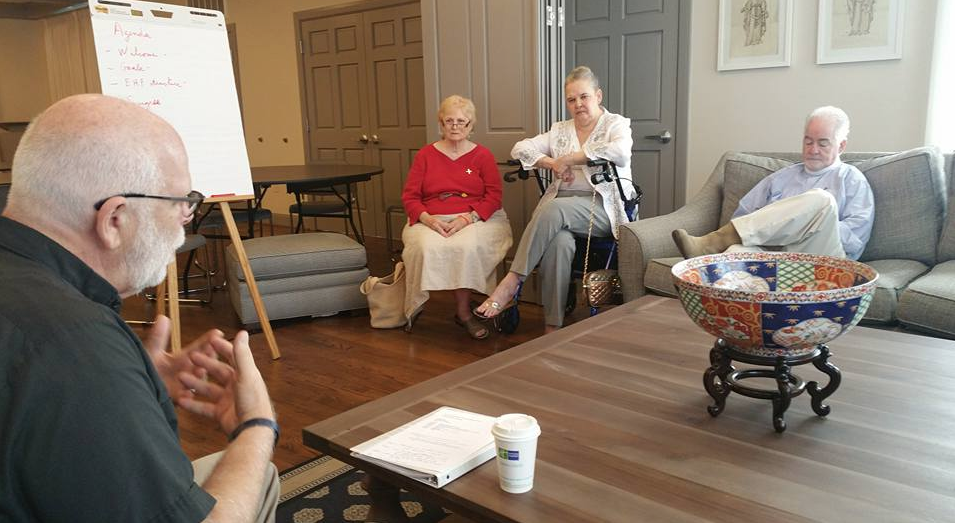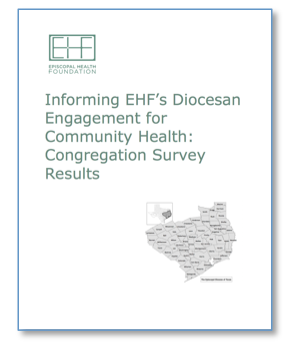
EHF recently conducted a survey of churches throughout the Episcopal Diocese of Texas. The goal of the survey was to better inform EHF’s strategy for partnering with churches and to strengthen their ability to contribute to community health.
In mid-August, EHF’s Impact division released the results of the survey looking at community health needs, existing services and ministries, and needed support from EHF.
The majority of churches surveyed (51%) reported that they understood their community’s health needs and resources moderately well. However, nearly one in three churches said they did not adequately understand community health concerns.
“Congregations know there are major health needs in their community,” said Lisa Madry, EHF’s Diocesan engagement officer. “They’re looking for ways to help them better understand those health needs and then look for effective ways to address them.”

Poverty, mental health and access to care were the top issues congregations reported were impacting health in their communities.
“We are 30 miles from the nearest health facility and many do not have transportation,” said a survey respondent from Church of the Epiphany in Calvert.
“I’m getting tired of doing funerals for young men in their early 20’s who have died from drug overdoses,” said another respondent from St. Michael’s Episcopal Church in Austin.
“With our limited access to primary care, I see so many with physical problems who wait until they are critically ill to find help,” said the survey respondent from St. Christopher’s Episcopal Church in Killeen. “They’re becoming sicker, it’s more costly to treat, and they’re missing work and family.”
More than 66% of congregations said they have existing services or outreach ministries directly impacting health and wellness. However, just 15% of churches reported their services and outreach were “very strong”.
EHF continues to develop partnerships with groups that can help provide training for congregations to use data tools to help better understand community health needs. Those groups can also help churches learn additional ways to create health outreach programs. In addition, the Foundation is in the process of developing its own web-based resource center to help guide congregations to resources that can help address mental health, access to health services, and poverty in their community.
“Information from the survey, combined with the many conversations EHF staff has had with congregational leaders, provides a road map for the kind of support EHF can provide,” Madry said. “We look forward to developing relationships with congregations and engaging transformative work to achieve health communities.”
